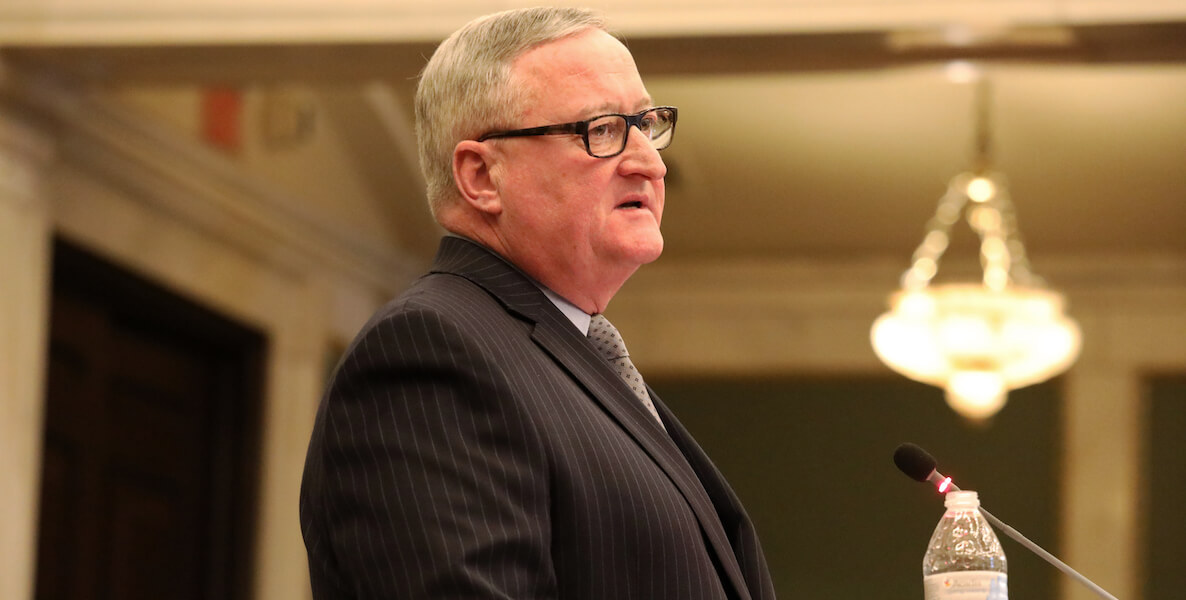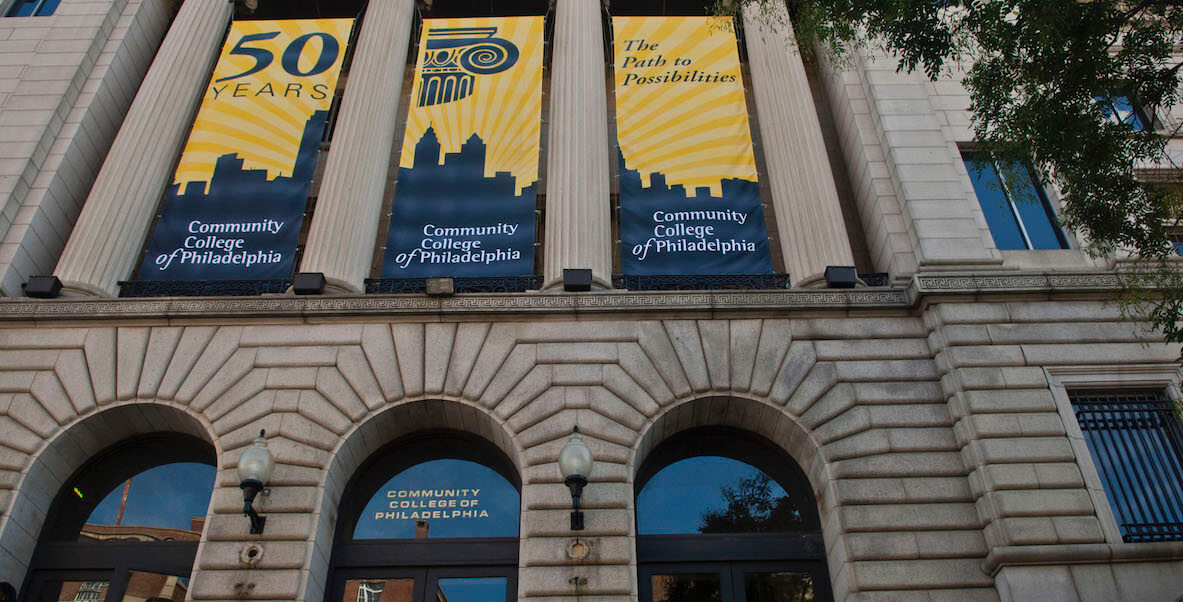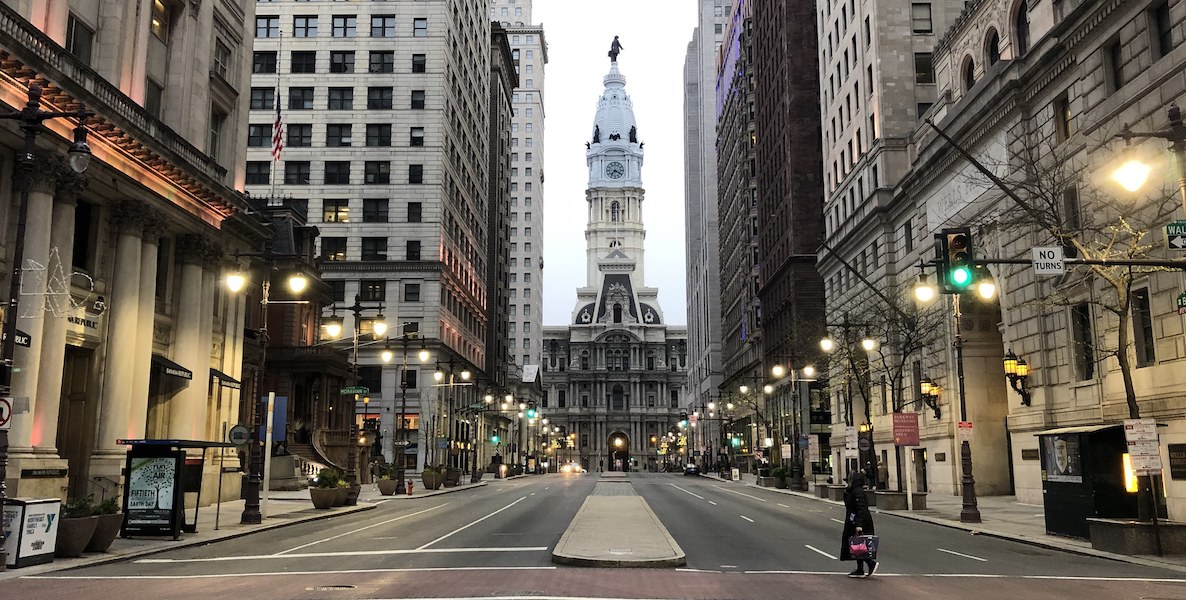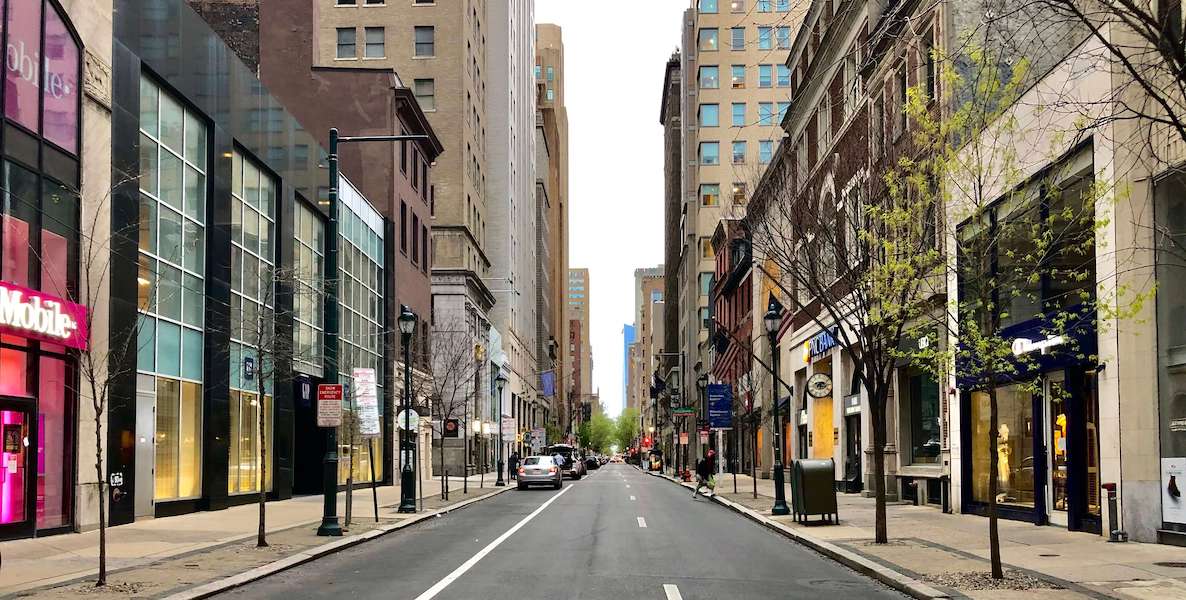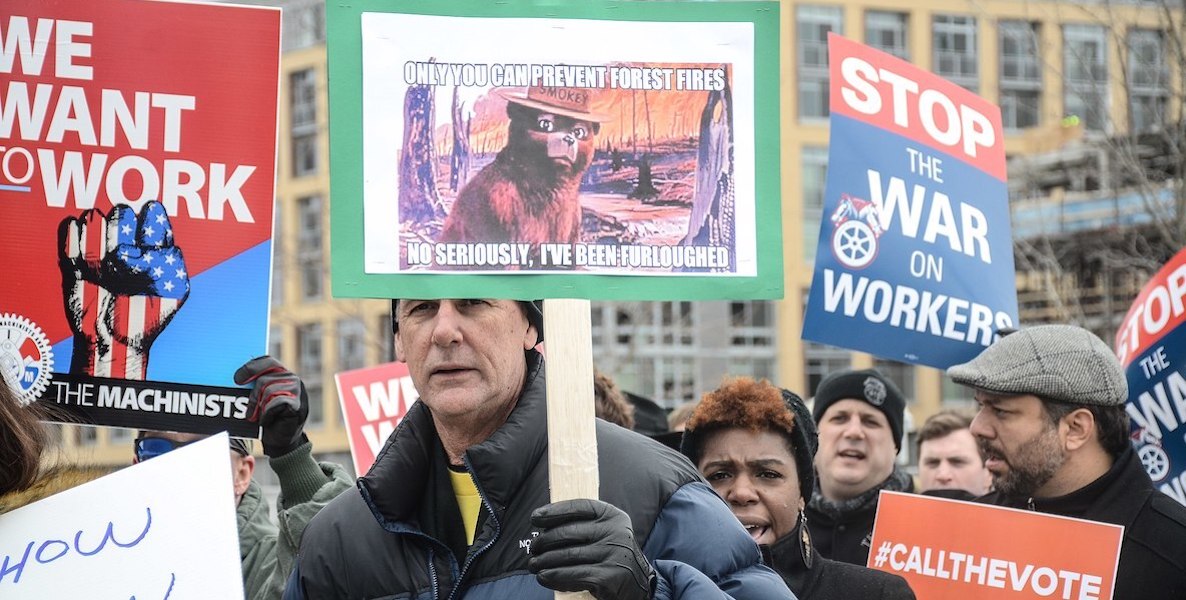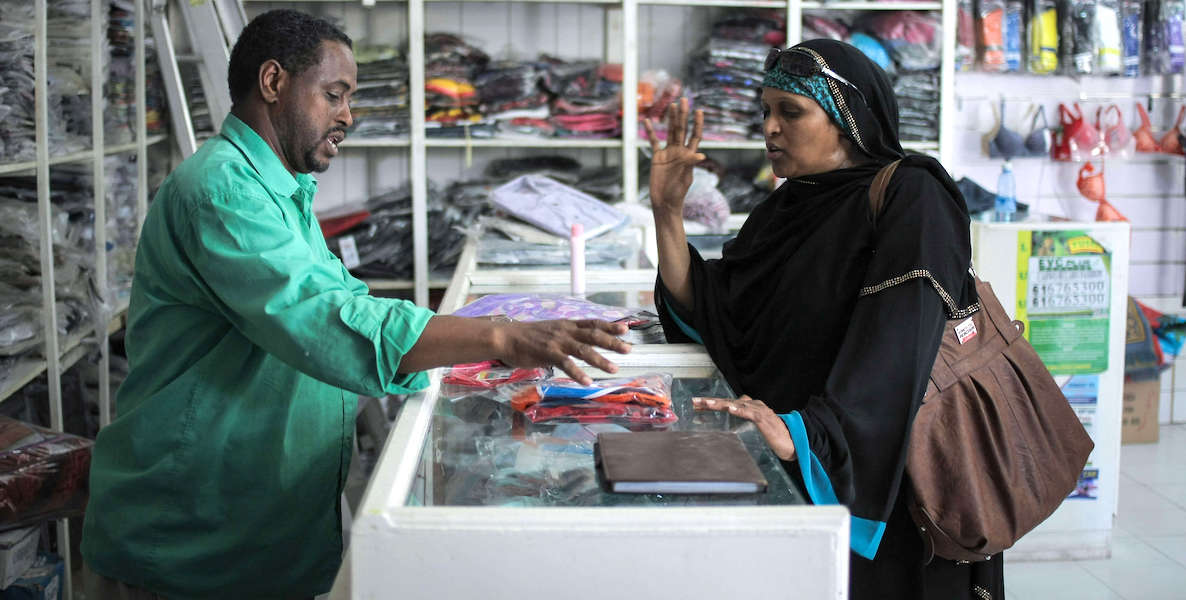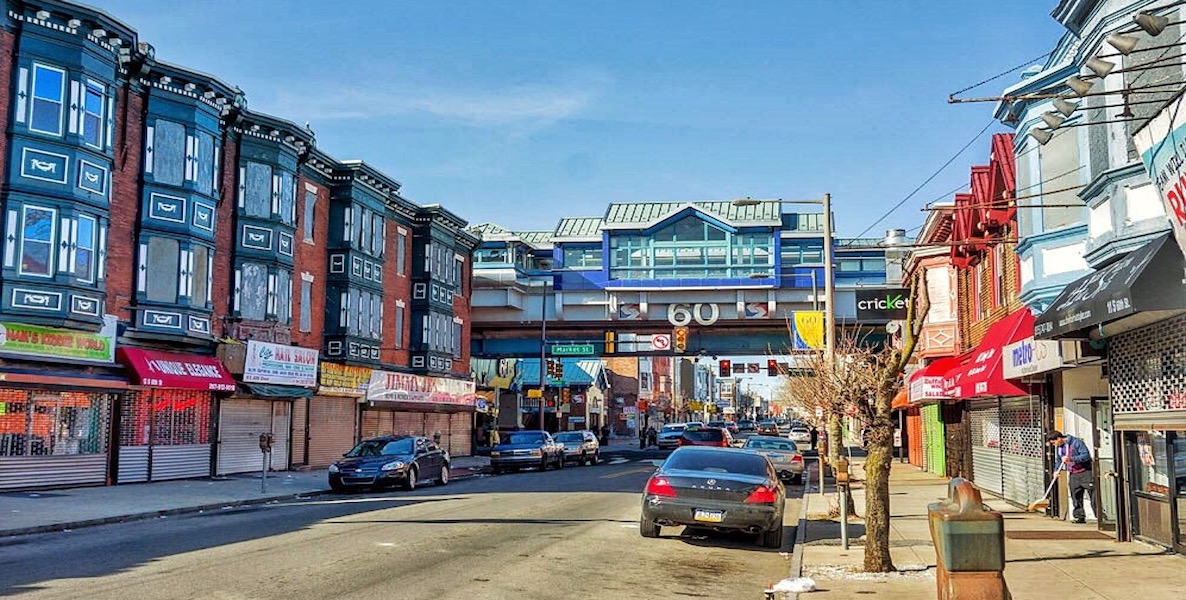![]() In April, Chicago Mayor Lori Lightfoot—admittedly, my foremost mayoral crush—boldly convened a Covid-19 Recovery Task Force to advise city government on its economic recovery plans. Stop and think about that for an instant: In April, leadership in Chicago was already signing onto the old Leo Durocher adage—“luck is the residue of design”—and plotting their comeback.
In April, Chicago Mayor Lori Lightfoot—admittedly, my foremost mayoral crush—boldly convened a Covid-19 Recovery Task Force to advise city government on its economic recovery plans. Stop and think about that for an instant: In April, leadership in Chicago was already signing onto the old Leo Durocher adage—“luck is the residue of design”—and plotting their comeback.
Well, their report is out, and it’s a doozy. In 104 pages, Forward Together: Building a Stronger Chicago lays out the historic challenges faced by the city, yes, but also presents the dire moment, as Lightfoot puts it, as a “once in a generation” opportunity to rebuild the local economy and achieve greater equity.
The Task Force, co-chaired by Lightfoot and former Bush 41 White House Chief of Staff Samuel Skinner, comprises regional heavy hitters in corporate, academic, philanthropic and political circles. Their report makes 17 recommendations, many of them ambitious, with an eye toward reimagining the Windy City over the next three years.
The elephant in our metropolis
We’ll dive a little deeper into the substance of the Chicago plan but, first, let’s address the elephant in our metropolis. As I wrote in May, when our Mayor huddled with his insular team of white guys (Brian Abernathy, Jim Engler, Rob Dubow, Rich Lazor) to present an ill-fated redo of the city budget, we weren’t about to get such overarching vision from City Hall.
Fortunately, about eight weeks ago, a group of civic and business leaders were smart enough to realize the wisdom in the old saying: When you don’t know where you’re going, any road will take you there.
Naturally, Comcast VP David Cohen was the first to see the gaping need before us. Cohen was a data nerd long before the term entered the lexicon. I was present at a dinner in 2007 between him and Mayor-elect Michael Nutter, in which Cohen—Mayoral Chief of Staff to Ed Rendell in the ’90s—pulled out from his inside jacket pocket a collection of yellow loose leaf sheets that had his handwritten scrawls all over them, complete with facts, figures and line items, a veritable, intricate, barely-legible P & L.
![]() Pausing only every once in a while to consult his notes, he started citing chapter and verse on just what the newly elected mayor could expect to be confronted with, fiscally-speaking.
Pausing only every once in a while to consult his notes, he started citing chapter and verse on just what the newly elected mayor could expect to be confronted with, fiscally-speaking.
“What is that?” I finally interjected, nodding toward Cohen’s notes.
“The city budget, basically,” he said.
“You prepared that for this dinner?” I asked.
“No, I always carry this with me,” he said, matter-of-factly.
So it should come as no surprise that while Mayor Kenney and other civic leaders were reasonably reacting to the Covid-19 disruption before them on a day-to-day basis, Cohen hunkered down and read studies that chronicled how cities bounced back from the Great Recession of 2008.
“I read a lot of articles from 2008 and 2009, and multiple studies,” Cohen said when I caught up with him this week. “One found that Philadelphia ranked 48th out of 50 cities. Another study placed us in the last quartile among peer cities. Recovery doesn’t happen by accident. If we don’t get organized, I realized, we’d once again be in that bottom quartile. We shouldn’t tolerate that. We’ve got great assets. It’s just a matter of marshaling them together and coming up with an organized plan.”
Getting to work
So, rather than wait for local government to enact a vision, Cohen and a small band of what he describes as “total partners” got to work. There was IBX CEO and Chamber of Commerce Board Chair Dan Hilferty; Chamber CEO Rob Wondering; and longtime consultant Sue Jacobson.
Cohen emphasized that their mission had to be an atypical Chamber of Commerce undertaking. As Lightfoot had done—“I have read the Lightfoot report, and you’re right, it’s terrific,” Cohen says—the working group they put together would have to get beyond the C-suite and look like Philadelphia, which meant inviting leaders from divergent realms, everything from small business to nonprofits to clergy to activism, to sit together at the problem-solving table.
“The biggest mistake we can make with this is to not provide partners with ownership of the plan,” Cohen says. “Diversity is one of Philadelphia’s great strengths. The other mistake that often happens is you hire a consultant like McKinsey to come, do all this research, make recommendations, and it’s a report that gets put on a bookshelf somewhere. I don’t need another consultant study on my bookshelf. This has to be a smaller number of short-run to medium-run actionable ideas that can be implemented over the next few months.”
In short order, The Philadelphia Regional Recharge and Recovery Task Force came into being. Along with the Chamber’s CEO Council for Growth Executive Director Claire Marrazzo Greenwood, the Task Force is being run by Project Manager Kate Hagedorn, a recent Wharton MBA grad who formerly served as the Chamber’s point person on civic engagement, one of those ambitious young Philadelphians reshaping the city.
The diverse, 36-member list of regional leaders recruited for the Task Force is an impressive group that includes non-usual suspects like venture capitalists Osagie Imasogie and Josh Kopelman, as well as Penn President Amy Gutman and Drexel President John Fry. (When The Citizen brought the presidents of the city’s major universities together a few years back for a stimulating public discussion, it was the first time all of them had been together, either in public or private.)
The Task Force report, which will be released within the next two to three weeks, will focus on eight key verticals: Higher Education; Small and Mid-Sized Companies; Hospitality/Tourism/Arts and Culture; Health Care Delivery; Financial Services; Tech, Media, Telecom; Life Sciences; and Talent/Workforce.
As Cohen knows, there are tons of ways these reports can go sideways. Here, then, worth precisely what the esteemed members of the Task Force are paying for it, are some warnings and highfalutin thoughts to perhaps help inform the home stretch of their deliberations:
Can collaboration be the new normal?
This is, and has long been, one very siloed town. Let’s take just one recent example: Earlier this year, before the pandemic, City Council announced a ludicrous “plan” to cut poverty by 25 percent in four years. Keep in mind, there is one city that cut its poverty rate between 2006 and 2013, and that was New York—and everybody cheered Gotham’s 4 percent poverty decline. Here, we were to believe, a set of vague bromides (universal basic income, without a nod toward how to pay for it) would reinvent the wheel and put all other cities to shame.
The plan materialized in a matter of months, after some Council hearings. On the morning of the press conference, a leader of a prominent nonprofit received an invitation to attend from the office of Council President Darrell Clarke and show support for the plan—which he’d still not even seen. But he went, because when the Council President asks…
Fact is, as Philadelphia has become more and more of a branch-office town, business leaders have outsourced civic leadership to the political realm (how’s that worked out for us?) and the nonprofit sector has often been loath to step up, reliant as it often is upon government largesse.
“The mistake that often happens is you hire a consultant like McKinsey to come, do all this research, make recommendations, and it’s a report that gets put on a bookshelf somewhere,” Cohen says. “This has to be a smaller number of short-run to medium-run actionable ideas that can be implemented over the next few months.”
We’re a city with institutions long conditioned to stay in their lane. Other cities, like Pittsburgh, have seen institutions step up and drive change. Once a symbol of Rust Belt decay, the Steel City has remade itself into a vibrant tech hub. The transformation has been driven by the Allegheny Conference on Community Development, a diverse consortium of business, nonprofit, university, philanthropy and local government leaders. This year, they’ve produced “Next Is Now,” a 10-year “vision of vitality for the Pittsburgh region.”
There is no Philly analog to the “all hands on deck” breadth and ambition of the Allegheny Conference, where you find diverse entities willingly accepting the mantle of city leadership beyond their own P&Ls.
That will require an en-masse revolution in stakeholder thinking and approach. Some of us had hoped that the way so many entities came together to shape the city’s Amazon pitch would lead to a new normal of collaboration and leadership, but—as in Pittsburgh—you just might need a central institution to marshall those forces together.
Could the work of the R & R Task Force be the first step toward that change? That gets us to our next bullet point:
Implementation is policy
That was the rallying cry of the late civic genius Jeremy Nowak, the Citizen’s founding Chairman. There is no dearth of great ideas; the problem is, city government is often the wasteland where ideas go to die. That’s why, in Chicago, the policy work on Lightfoot’s plan was staffed by Chicago’s Civic Consulting Alliance, which dispatches nonprofit and business leaders to work with local government, infusing the bureaucracy with visionary planning and policy implementation experience.
Let’s assume the R & R report is as good as Chicago’s, chock full of stirring ideas. Fact is, the most innovative part of Chicago’s plan is not the ideas; it’s the pledge that the Task Force will continue to meet on a quarterly basis and publicly update on its goals and timetables through 2023. And it’s that the implementation of its recommendations won’t fall squarely on the shoulders of City Hall bureaucrats and political apparatchiks. The role of the Consulting Alliance will continue, in other words.
Here, there is no Civic Consulting Alliance analog; the Chamber doesn’t even have a vibrant policy arm. Much of the research done by the Task Force was performed by McKinsey and the staffs of those on the Task Force. “I was just in a meeting this morning about this very thing,” Cohen says. “The bulk of the discussion now has to be, ‘How do we execute?’ After we put out the working model, we have to keep the leadership of the eight pillars involved. We have to track progress and hold, and be held, accountable.”
It’s a good sign that Cohen and Hilferty, et al, see the need for a sustained implementation plan, and it’s also encouraging that, according to Cohen, Mayor Kenney has been enthusiastic about the Task Force’s work behind the scenes. But it no doubt would be easier to rethink the city if the Mayor took ownership of a recovery plan, as in Chicago.
![]() There are a lot of good ideas to borrow from Chicago’s plan, like reimagining workforce development, like incentivizing corporations to do business with local, small and minority-owned vendors, (which Drexel University’s Bruce Katz writes about today,) and like establishing a “Chicago Service Corps,” creating paid public works opportunities for underemployed people, furloughed workers, and young people.
There are a lot of good ideas to borrow from Chicago’s plan, like reimagining workforce development, like incentivizing corporations to do business with local, small and minority-owned vendors, (which Drexel University’s Bruce Katz writes about today,) and like establishing a “Chicago Service Corps,” creating paid public works opportunities for underemployed people, furloughed workers, and young people.
But the easy part will be releasing some good ideas. The hard part will be turning the tanker that is local government to adopt them in ways that don’t render them unrecognizable once the bureaucracy has its way with them.
Opportunity, opportunity, opportunity
I’ve been waiting for someone in our political realm to brand him or herself an “Opportunity Democrat,” but apparently the polarization of our politics makes that a non-starter. But a city with the worst poverty in the nation that doubles down on opportunity as to a way to address the ever-widening gaps between have and have-not? That would seem to be a winning strategy.
Lori Lightfoot thinks so. Even before Covid-19, she’d focused on stakeholder collaboration and investment to steer more than $750 million to distressed neighborhoods, and she’d implemented a Solutions Toward Ending Poverty (STEP) program that went beyond safety net measures and instead aimed at growing out of poverty. Now she’s doubling down on growth.
The easy part will be releasing some good ideas. The hard part will be turning the tanker that is local government to adopt them in ways that don’t render them unrecognizable once the bureaucracy has its way with them.
“You’re right, everybody is facing revenue challenges, but that’s the whole point,” Lightfoot said on CNBC, when, upon releasing her plan, the proposed significant investments in workforce development, infrastructure and job growth were questioned. “If you don’t grow the economy, if you don’t lure new businesses, if you don’t expand existing businesses, then you’re not going to have the revenue stream to support the vital services that the government provides. We are looking to grow and not just tax the existing economy. We’ve got to give our businesses some relief and you do that by growing the economy and focusing on our strengths.”
So what does a pro-growth agenda look like, beyond just lowering taxes and becoming more business-friendly? First, it requires acknowledging that we have a lot be ashamed about—like our worst-in-the-nation poverty rate—but that arguably Philadelphia’s most stunning statistic is that, in a city that is 45-percent Black, only 2.5 percent of businesses are owned by African Americans; it’s 6 percent if you count sole proprietors. If we’re putting together a plan to grow, what is the North Star goal for (a) poverty and (b) African-American business ownership?
Venture capitalist, entrepreneur and philanthropist John Hope Bryant, founder of Operation Hope, is out with his “Marshall Plan for Black America.” It’s a “government-framed, public policy-led, private sector co-invested and encouraged, community-adopted, and American citizen-supported plan that would effectively harness the untapped aspirational potential of tens of millions of African Americans through free enterprise,” Bryant says. “I am talking about adding 1 to 2 percent of annual GDP through a rational investment plan for a revitalized America.”
There’s a lot in Bryant’s bold call for unleashing capital in distressed neighborhoods throughout the nation that could be applied in Philadelphia. But encouraging investment in North Philly is easier said than done, as evidenced in this excerpt from Andre Perry’s Know Your Price: Valuing Black Lives and Property in America’s Black Cities, which, in tragic detail, chronicles all of the systemic roadblocks to making sure that investment meets inner-city need.
But I cite Bryant because of his boldness: It’s great that Cohen is talking about actionable short-run steps, but we also need something to rally around, something like a Marshall Plan for Philadelphia. We need to heed FDR’s long ago call for “bold, persistent experimentation.”
This week, The New Yorker is out with a compelling look at the promising results of Stockton, California’s guaranteed income experiment, under Mayor Michael Tubbs, funded in part by the foundation of Facebook co-founder Chris Hughes, who spoke at our 2018 Ideas We Should Steal Festival.
I don’t expect the forthcoming report from the Philadelphia Regional Recharge and Recovery Task Force to blow us away with out-of-the-box systemic reforms. It will be enough, for now, that smart, accomplished leaders are engaged, and will continue to be.
I’ve been on the fence about guaranteed income and universal basic income experiments because of how Michael Bloomberg attacked poverty and grew jobs in New York: by rewarding work. But maybe Andrew Yang was on to something? Maybe the city with the worst poverty and anemic job growth ought to be a testing ground for new ideas?
And maybe we should commit to solving our own problems. Citizen columnist Bruce Katz’s work at Drexel and with Accelerator for America, a consortium of mayors and city leaders developing solutions to economic insecurity, has made him an evangelist for pro-opportunity, inclusive economic growth, particularly now. He goes beyond the usual options of seeking bailouts or reflexively tax and spending, and talks instead about the ways cities can help themselves.
![]() “In Copenhagen and Hamburg, they have public asset corporations, public or privately owned and publicly managed institutions that are able to take all the land owned by the government—city, county, state, port authority, airport authority, stadium authority, redevelopment authority—and put it into one corporate vehicle and get the revenue from the disposition of that publicly owned land to invest in infrastructure, innovation, inclusion,” Katz says.
“In Copenhagen and Hamburg, they have public asset corporations, public or privately owned and publicly managed institutions that are able to take all the land owned by the government—city, county, state, port authority, airport authority, stadium authority, redevelopment authority—and put it into one corporate vehicle and get the revenue from the disposition of that publicly owned land to invest in infrastructure, innovation, inclusion,” Katz says.
Of course, here, we know that the city is—and shouldn’t be—in the gas, water and airport business. (In 2015, Council President Darrell Clarke shamefully didn’t even hold a single hearing on the Nutter administration plan to sell the Gas Works, which would have been at least a net $400 million windfall for the city). But beyond those assets, there is no master list of all that the city owns. Katz says that’s no surprise.
“You think there’d be a website, but it doesn’t work like that,” Katz said. “If you want to actually finance large scale infrastructure, you need to know what the government owns, the value of what it owns, and have a disposition strategy so the public can benefit from it as opposed to having a fire sale because everyone is desperate. I think with big data and analytics we can begin to build a platform for this new kind of finance in the U.S. We act like we’re poor. We’re not. These are the wealthiest cities in the world. What we don’t have are the mechanisms that are tried and tested primarily in Northern Europe to get beyond tax and regulate.”
As Katz often reminds us, the United States does not lack capital. Access to capital? That’s another thing. Minority entrepreneurs have been systematically shielded from opportunity, as Perry’s book makes clear. Any recovery plan for Philadelphia needs to reckon with at least addressing, if not dismantling, the forces that have combined to make the average net worth of a white family 10 times that of a Black family.
I don’t expect the forthcoming report from the Philadelphia Regional Recharge and Recovery Task Force to blow us away with out-of-the-box systemic reforms. It will be enough, for now, that smart, accomplished leaders—with talented staffs they’ve deployed to research these matters—are engaged, and will continue to be.
But, also, here’s hoping it’s a first step. About three years ago, I was at a conference about innovation in cities, and someone asked Kasim Reed, the then-mayor of Atlanta, just how he’d managed to post such stellar economic growth numbers in post-Great Recession America. He smiled and confessed that his success in creating jobs had little to do with him.
He cited all the job creators in his region—Coca-Cola, Home Depot and Turner Broadcasting among them—and he credited their CEOs and other best and brightest minds in his region for informing his city’s economic development policies and for helping his government implement them.
What a novel idea, I thought at the time: a kitchen cabinet of civic leaders that focuses on solving problems and isn’t afraid to tell elected leaders what to do, and offer their expertise in how to do it.
Photo by Elevated Angles / Visit Philadelphia


